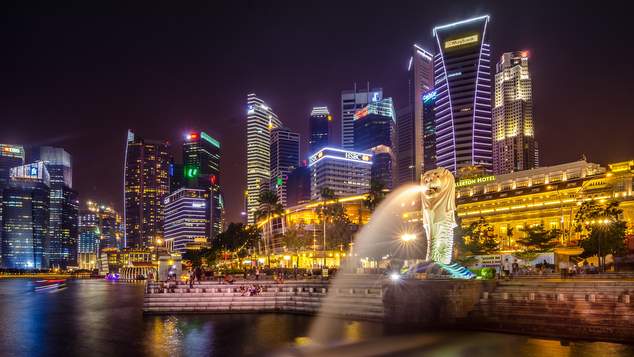
Singapore’s High Court has rejected three different cases challenging the country’s colonial era laws that outlaw homosexuality.
Section 377A of the country’s Penal Code criminalises same-sex relations between men. The law was introduced in the 1930’s when Singapore was ruled by Britain and echoes similar laws left by the British around the world.
LGBTI human rights organisation Outright Action International said Singapore stands in stark contrast to international human rights standards, and has missed the opportunity to join the wave of decriminalisation of same-sex relations across the world. Recently in Botswana, Angola, Trinidad and Tobago, and neighboring India have removed similar laws.
Section 377A of the Penal Code prescribes imprisonment of up to 2 years. It was being challenged in terms of its constitutionality and redundancy, as the law is rarely and arbitrarily applied, in three separate cases, by plaintiffs Johnson Ong Ming, Roy Tan Seng Kee, and Bryan Choong Chee Hoong.
All three challenges were dismissed today by Justice See Kee Oon who highlighted that section 377A does not violate the constitution and “continues to serve its purpose of safeguarding public morality by showing societal moral disapproval of male homosexual acts ”.
Justice Oon noted, in particular, that is there is inconclusive evidence that homosexuality is biological and immutable, that regardless scientific discussions are not a matter for the court to rule on, and that “identity or status is not an element of the offense” therefore applying equally to homosexual, bisexual or heterosexual men.
Jessica Stern, Executive Director of OutRight Action International said the finding was incredibly disappointing.
“It is incredibly disappointing to see the High Court of Singapore uphold this colonial-era law. Even while lying dormant, such laws send a strong message – that gay and bisexual men are not only second class citizens, but also criminals, purely for who they love. Today that message was amplified, legitimizing societal hate, discrimination, and exclusion of LGBTIQ people in Singapore.” Stern said.
Lawyer Remy Choo, a former participant of OutRight Action International’s annual Advocacy Week, who represented plaintiff Bryan Choong, said that while today’s challenge had not been successful advocates for LGBTI rights would fight on until the laws were changed.
“Victory isn’t ours today, but I’m confident that one day it will be. One of my favorite quotes, from a book from my childhood – Winnie the Pooh -, is ‘Rivers know this: there is no hurry. We shall get there someday’. For now, we press on.” Choo said.
Téa Braun, Director of the Human Dignity Trust (HDT) said by not removing the law the court was telling all gay men in Singapore they were criminals.
“In declining to strike out this archaic and discriminatory law, the Court has reaffirmed that all gay men in Singapore are effectively un-apprehended criminals,” Braun said following the judgement.
“This decision will be extremely disappointing for the plaintiffs and the wider LGBT community in Singapore, who had great hopes that new evidence presented to the Court would make it clear that these draconian laws cannot withstand proper constitutional scrutiny.
“The ruling will also echo harmfully around Asia, where millions of people are criminalised simply because of their sexual orientation or gender identity.” Braun told Forbes.
The city’s LGBTI community has also recently learned that they will not be able to hold the annual Pink Dot celebrations which highlight LGBTI rights because of the COVID-19 pandemic.
OIP Staff

Love OUTinPerth Campaign
Help support the publication of OUTinPerth by contributing to our
GoFundMe campaign.




